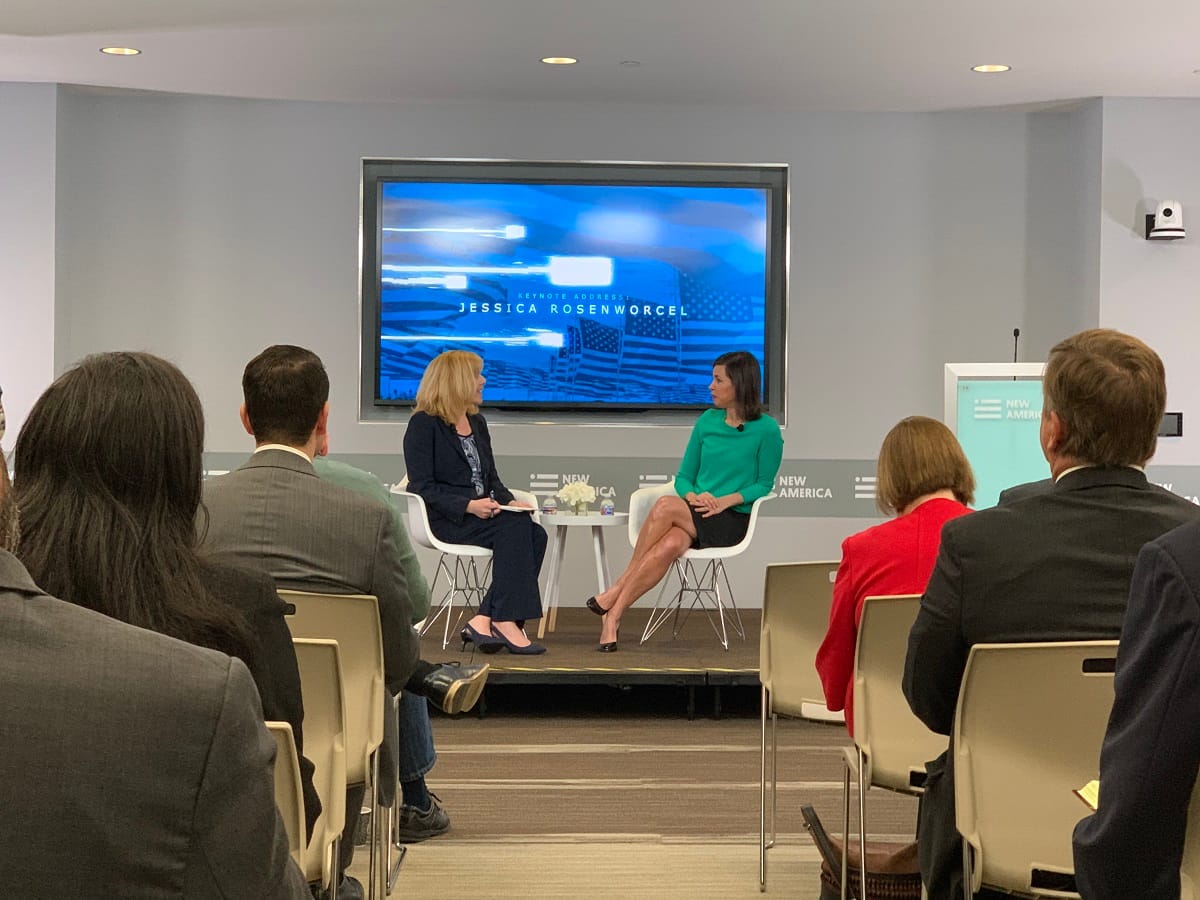‘Leave No Child Offline,’ Pleads FCC Commissioner Jessica Rosenworcel, Brendan Carr and Rep. Mike Doyle
WASHINGTON, March 4, 2020 – House Energy and Commerce subcommittee chairman Mike Doyle, D-Penn., Federal Communications Commissioner Jessica Rosenworcel, and FCC Commissioner Brendan Carr all took turns addressing the homework gap and bad broadband maps at the Incompas policy summit Tuesday. “I play
David Jelke

WASHINGTON, March 4, 2020 – House Energy and Commerce subcommittee chairman Mike Doyle, D-Penn., Federal Communications Commissioner Jessica Rosenworcel, and FCC Commissioner Brendan Carr all took turns addressing the homework gap and bad broadband maps at the Incompas policy summit Tuesday.
“I play to win,” said Doyle, who is also manager of the Democratic Congressional Baseball team. “That’s my goal in Congress as well,” said Doyle in regards to his work in supporting the Television Viewer Protection Act, net neutrality, and a public auction of the C-Band wireless spectrum.
Doyle’s comments suggest that his next legislative effort will be tackling the “homework gap” facing rural America. “There are parents parking outside libraries and fast-food parking lots” to get their kids Wi-Fi to complete their homework.
“Government needs a full suite of tools to attack all the issues that Americans are facing.”
Doyle criticized the pace at which broadband grant programs, including the Rural Digital Opportunity Fund are proceeding, despite being rooted in the roundly-criticized Form 477 data.
“The FCC is trying to rush a bunch of items out the door,” said Doyle. “Bad data will lead to bad outcomes.”
To illustrate the confusing and at times frustrating experience of broadband consumers, Doyle mentioned how only Verizon and Comcast offered internet in his jurisdiction of Pittsburgh.
He said he has often “switched between the two” depending on price.
He spoke with glee about the times when he put salespeople from Verizon and Comcast on the same call, just to have them fight over the Representative’s business. Sometimes it worked, Doyle said, and other times both have told him to “jump in a lake.”
Jessica Rosenworcel, who has long championed the need to tackle the homework gap, recounted a story about a young girl from Hartford, Connecticut.
Without access to broadband in her home, the student became incredibly adept at typing out essays with “two thumbs on a mobile device.” Rosenworcel emphasized that resilient students like this one were not the rule but the exception, and that mobile service should not be a substitute for fixed wireless.
“Leave no child offline,” Rosenworcel declared, to the approval of the audience.
Rosenworcel also came down hard against the FCC’s data collection track record.
“Your head explodes” thinking about how billions of dollars are being funneled to developing broadband in locations that are dictated by the FCC’s data, and which Rosenworcel called “a publicity stunt.”
With a hint of pride, Rosenworcel recounted how she was chastised by the FCC when she attempted to obtain the email alias ‘broadbandfail@fcc.gov.’ The email address, Rosenworcel explained, was short-lived.
Brendan Carr came down with a lighter touch against the FCC’s data collection practices.
Instead, he focused on the U.S.’s progress in the so-called 5G race against China. According to Carr, there has been a 68 percent buildout in fiber in the U.S. since 2016, enough to “wrap around the world 18 times.”
Carr praised the work of front-line broadband heros, including two pole operators he met in Florida and who spent 50 hours straight in the aftermath of Hurricane Irma trying to get the network back online in the state.
Carr widened his praise to the 27,000 tower climbers in the U.S. that he said are currently helping 5G become a reality.
Lastly, Carr extolled the virtues of telemedicine, saying that proper deployment of broadband in that field will help close the “doctor divide.”









Member discussion